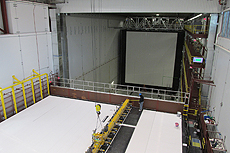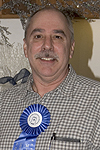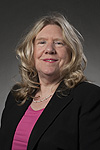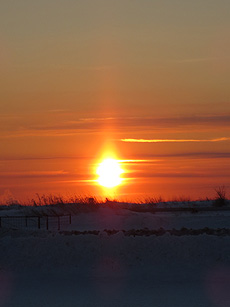|
Have a safe day!
Tuesday, Feb. 11
11 a.m.
Academic Lecture Series - One West
Speaker: Roxanne Guénette, University of Oxford
Title: Liquid-Argon Detector Technology
11 a.m.
Special Seminar - WH11NE
Speaker: Petra Merkel, Purdue University
Title: Performance of the CMS Tracker and Its Role in Higgs Searches
3:30 p.m.
DIRECTOR'S COFFEE BREAK - 2nd Flr X-Over
4 p.m.
Accelerator Physics and Technology Seminar - One West
Speaker: Dave Johnson, Fermilab
Title: Linac Laser Notcher Project in the Proton Improvement Plan
Wednesday, Feb. 12
3:30 p.m.
DIRECTOR'S COFFEE BREAK - 2nd Flr X-Over
4 p.m.
Fermilab Colloquium - One West
Speaker: Sally Dawson, Brookhaven National Laboratory
Title: What is the Energy Scale Beyond 1 TeV?
Click here for NALCAL,
a weekly calendar with links to additional information.
Ongoing and upcoming conferences at Fermilab
|
|
Tuesday, Feb. 11
- Breakfast: All-American breakfast
- Breakfast: bacon, egg and cheese bagel
- Grilled reuben sandwich
- Smart cuisine: portobello and peppers over soft polenta
- Beef stroganoff
- Grilled-chicken Caesar jazz salad wrap
- Pork carnitas soft tacos
- Split pea with ham soup
- Chef's choice soup
- Assorted pizza by the slice
Wilson Hall Cafe menu
|
|
Wednesday, Feb. 12
Lunch
- Cuban black bean patties
- Pineapple rice
- Coconut tres leches cake
Friday, Feb. 14
Dinner
- Potato, bacon and gruyere souffle
- Surf and turf (steak and lobster)
- Mushroom risotto
- Chocolate fondue
Chez Leon menu
Call x3524 to make your reservation.
|
|
NOvA experiment sees first long-distance neutrinos
 |
Workers at the NOvA hall in northern Minnesota assemble the final block of the far detector in early February 2014. The nearly completed detector is in the background. Photo courtesy of the NOvA Collaboration
|
Scientists on the world's longest-distance neutrino experiment announced today that they have seen their first neutrinos.
The NOvA experiment consists of two huge particle detectors placed 500 miles apart, and its job is to explore the properties of an intense beam of ghostly particles called neutrinos. Neutrinos are abundant in nature, but they very rarely interact with other matter. Studying them could yield crucial information about the early moments of the universe.
"NOvA represents a new generation of neutrino experiments," said Fermilab Director Nigel Lockyer. "We are proud to reach this important milestone on our way to learning more about these fundamental particles."
Scientists generate a beam of the particles for the NOvA experiment using one of the world's largest accelerators, located at the Department of Energy's Fermi National Accelerator Laboratory near Chicago. They aim this beam in the direction of the two particle detectors, one near the source at Fermilab and the other in Ash River, Minn., near the Canadian border. The detector in Ash River is operated by the University of Minnesota under a cooperative agreement with the Department of Energy's Office of Science.
Billions of those particles are sent through the earth every two seconds, aimed at the massive detectors. Once the experiment is fully operational, scientists will catch a precious few each day.
Read more
|
Michael Frett celebrates retirement this week
 |
|
Michael Frett
|
After more than 38 years in service to Fermilab, Michael Frett, operations supervisor of the Main Injector and Recycler Ring Mechanical Support Group, is retiring.
When Mike first started at Fermilab as a lab assistant in the Technical Division, the now decommissioned Tevatron was called the Energy Doubler. In fact, one of Mike's first assignments was building the one-foot prototypes of the Energy Doubler dipole magnets.
Mike later transferred to the Accelerator Division, where he worked on such projects as the Antiproton Source lithium lens, electrostatic septa, ion profile monitors, a synchrotron light monitor and the installation and operation of the Main Injector and Recycler Ring. Mike's involvement in this great variety of accelerator technologies has been indispensable to the development and operation of the entire accelerator complex.
More recently, Mike has led the Advanced Accelerator Technologies and Main Injector and Recycler Ring Mechanical Support groups. His leadership is characterized by his devotion to creating and maintaining a great work environment for those under his care. In return, the groups that Mike led are known for their dedication, attention to detail and cooperation.
Mike is looking forward to spending more time on his many hobbies, including collecting and restoring Americana (yes, he is a "picker"), small engine repair and visiting many family and friends around the country.
Mike's last day is March 14. Please join us in wishing Mike well at a cake-and-coffee celebration in his honor on Thursday, Feb. 13, from 2 to 3 p.m. on the Wilson Hall second-floor crossover. Please notify Ruth Becker today at x4736 if you plan to attend.
—Patrick Hurh, Accelerator Division Mechanical Support Department
|
The year 2014 — the real starting year of the ILC?
From LC NewsLine, Feb. 6, 2014
Close to the end of the year 2013, we had encouraging news for the ILC. On 24 December, the Japanese cabinet released the government budget decision for fiscal year 2014, which includes an official budget for the International Linear Collider. The amount of the budget is 50 million yen, about half a million US dollars, which might not seem like a lot at first glance. However, this budget is highly significant in a symbolic way towards the realisation of the ILC, since this budget represents a qualitative change in the status of the ILC in the Japanese government. It means that the ILC is now recognised as a formal project.
Read more
|
|
Contract assurance
 |
Chief Operating Officer
Vicky White
|
What on earth is this you may say? What contract? Assuring what? And what does it have to do with me?
Fermi Research Alliance has a contract with the government to manage and operate Fermilab. If you hire a contractor to remodel your house, the deal comes with a written contract spelling out a very large number of expectations and deliverables, and assurances that work will be done the way you want and done right. FRA's contract with the government is 458 pages long, contains about 660 different clauses, references more than 200 different Department of Energy orders (rules and guidance) and other federal regulations, and sets goals for scientific excellence. All of these expectations are perfectly reasonable and designed to assure the taxpayer that their money is well spent.
DOE and the public want to know that we are doing things right and achieving excellent results, and there are a number of reviews and audits and inspections to assure them that we are. But, most importantly, we need to assure ourselves. If we can do that and show that we are being honest and self-critical in reviewing ourselves, then that counts for a lot and builds confidence in our lab and our way of working. That is what a Contractor Assurance System does.
Today, our CAS is being refurbished for a number of reasons. First, we need to make absolutely sure that things we are required to do are done properly and by required standards across the lab, whether those be working safely, carrying out high-quality engineering or managing our money, projects, people, property and information. Second, we need to make sure that we have the necessary policies and procedures in place, but not outdated ones that apply to another era. Third, we need to assess whether or not we have the right balance between getting our work done in an open collaborative manner and interpreting the rules and expectations in a risk-appropriate manner. Our CAS improvement initiative is to look at all of the lab's policies, for a start, then to streamline procedures, forms and signatures, assuring that they are applied consistently across the lab. Finally, we are working to objectively measure how well we are doing in all areas so we can identify problem areas early and spot opportunities for improvement.
I believe that a modern lab needs to pay close attention to all areas of expectation in its contract. I ask for your support to help tune up our policies and procedures and forms and ways of doing business as we work toward a strong and vibrant future at Fermilab
|
Warmth in the distance
 |
| The sun shines through streaks of clouds as it rises over Fermilab on Wednesday. Photo: Chris Ader, AD |
|
|